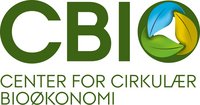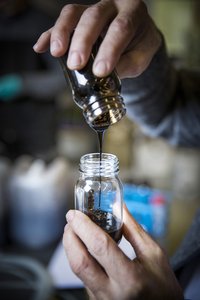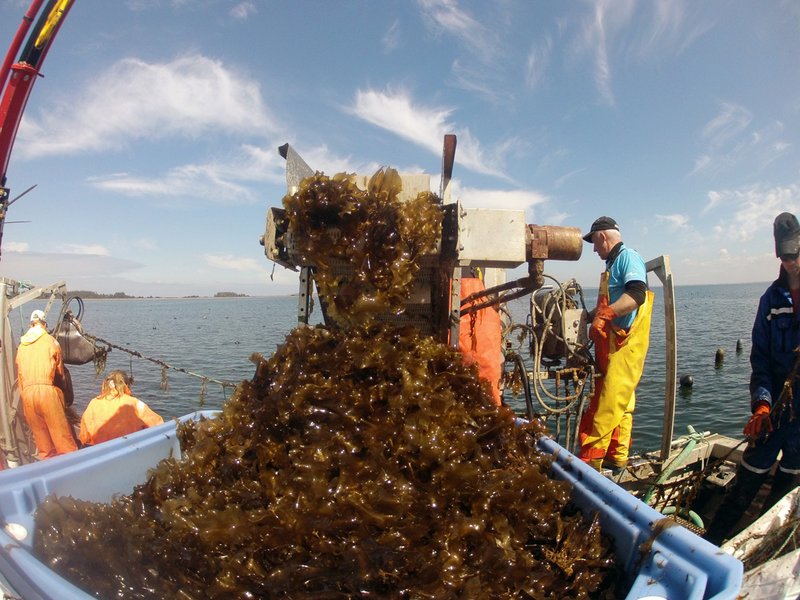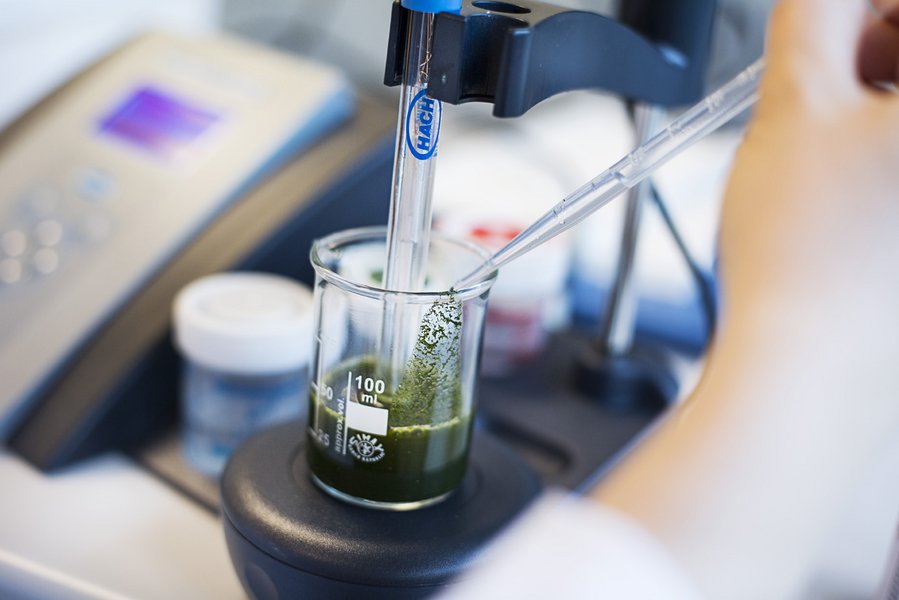Centre for Circular Bioeconomy inaugurated at Aarhus University
The world is facing a number of global grand challenges, particularly regarding the establishment of a new biobased economy that can take over from fossil energy. Bioeconomy is attracting considerable international attention, and is a strategic priority for the EU. On this basis, Science and Technology is now opening the Centre for Circular Bioeconomy at Aarhus University. It is a research strategy with international impact, and the venture aims to ensure interdisciplinary research and the development of bioeconomical production systems and recycling concepts.




It is a well-known fact that the world’s fossil resources are under pressure. Three globes would be required to maintain the current Danish consumption of resources such as oil and water in the future. There is therefore a need to develop society towards using more sustainable sources and ensuring better utilisation of the scarce resources. For this to eventuate, it is absolutely crucial to increase focus on basic research in this field.
Bioeconomy based on biological rather than fossil materials is an important part of circular economy, and this is where Aarhus University is in a particularly strong position with research expertise at Science and Technology. The Centre for Circular Bioeconomy is therefore being set up with the clear aim of ensuring synergy and interdisciplinary research projects in this area, as well as strengthening collaboration with national and international companies and organisations working in the field of biobased economy.
- Major challenges require great ideas. There is increasing focus on circular economy, both in Denmark and abroad, and resource-efficient production systems will become even more necessary. We’re pleased that we can now present this centre as part of a strategic initiative at Science and Technology. Via interdisciplinary research in an international class of its own, the centre will provide a strong foundation for increased business collaboration, public sector consultancy, and involvement in international cooperation. Our ambition is to be in the top international league in this field, says Dean Niels Chr. Nielsen, Science and Technology, Aarhus University.
The centre aims to carry our research into bioeconomical production and recycling systems, and to develop this in areas such as biorefinery methods and high-value products based on green crops, marine biomass, and food sector residues. The interdisciplinary research will make it possible to boost value creation, at the same time as increasing overall yield and reducing environmental and climate impact from areas such as food production.
All the way round
Circular bioeconomy is an area where Denmark is in a particularly strong position, and the new centre will further boost this development. Science and Technology has research and unique research facilities that cover the entire value chain from primary production, pretreatment and biorefinery to the formulation and testing of biobased products and energy, including high-value products such as protein and ingredients for the food industry, as well as chemical building blocks for the chemical industry. The faculty also has strong research environments in environmental and socioeconomic assessments of food production.
The combination of science, engineering and research-based public sector consultancy gives Aarhus University a unique opportunity to work with the grand challenges we are facing.
The activities in the new centre will generally contribute to establishing new companies and business areas in biobased economy, including the production and marketing of new Danish proteins for both livestock and food production.
- We’ve been working with all aspects of the value chain for a number of years, and there are great prospects in gathering and strengthening these activities in one centre, thereby ensuring better synergy. I’m therefore looking forward to improving the integration of knowledge right along the production chain, and eventually helping to develop, analyse and launch specific product chains in collaboration with the business sector, says Senior Researcher Uffe Jørgensen, Department of Agroecology, who has been appointed director of the new centre.
Extensive venture
A prerequisite for biobased economy is the development of biorefinery technologies and production systems that are sustainable in both an economic and an environmental context. In this connection, the Central Denmark Region is launching an ambitious bioeconomy programme to provide companies with new opportunities.
- Bioeconomy is a way to ensure better management of the world’s resources, at the same time as providing companies with new economic opportunities via initiatives such as developing new business models. The Central Denmark Region has very strong research environments and a number of internationally strong companies. In combination, they promote research and development leading to many of the technological breakthroughs that can boost bioeconomy. With this development programme for bioeconomy in the Central Denmark Region, we wish to open up for new opportunities to develop the region’s business community, says Chairman of the Regional Council Bent Hansen (Danish Social Democrats).
Aarhus University has unique facilities at its disposal for the cultivation of biomass on land and at sea. There are numerous opportunities, and there is already considerable growth – and export – in areas such as bioenergy technology and options for expanding with technology to utilise products such as grass, clover, algae and mussels. In addition, there is significant potential for producing ingredients and components that can be used in the food and pharmaceutical industries.
- I’m pleased that the Centre for Circular Bioeconomy will be able to elevate research in this area to new heights, and further develop all the good contacts and ideas we already have, and those we’ll acquire in collaboration with other research institutions and the business sector. There are really lots of interesting opportunities for future projects, says Senior Researcher Jørgensen.
Inauguration of the Centre for Circular Bioeconomy
From 14.30 on Tuesday 23 May 2017, AU Foulum will bring the initiative into focus at the inauguration of Aarhus University’s Centre for Circular Bioeconomy. This will form the basis for the development of the biobased products of the future in collaboration with industry and research. On the day, it will be possible to view the facilities, meet the researchers and decision-makers, and enjoy a ‘circular meal’.
The Centre for Biorefinery Technologies will also be inaugurated at the Department of Engineering, with a demonstration of refining grass for green protein.
Contact:
Centre Director Uffe Jørgensen
Centre for Circular Bioeconomy
Mobile +45 2133 7831
uffe.jorgensen@agro.au.dk
Dean Niels Chr. Nielsen
Science and Technology
dean.scitech@au.dk
Facts:
The Centre for Circular Bioeconomy is a part of Science and Technology at Aarhus University, with Senior Researcher Uffe Jørgensen as centre diretor. The following departments and centres contribute to the work:
- Department of Agroecology
- Department of Bioscience
- Department of Food Science
- Department of Animal Science
- Department of Engineering
- Department of Chemistry
- Department of Molecular Biology and Genetics
- Department of Environmental Science
- DCA – Danish Centre for Food and Agriculture
- DCE – Danish Centre for Environment and Energy
